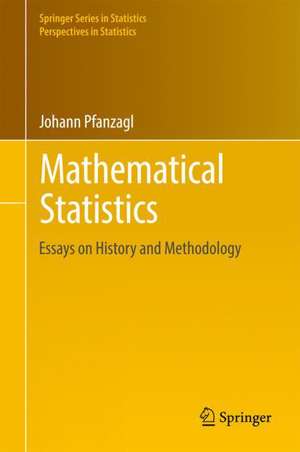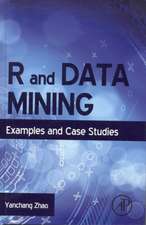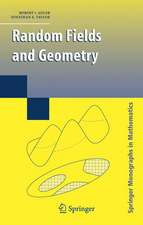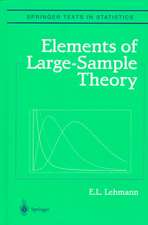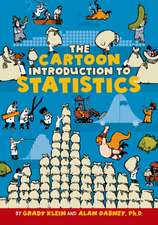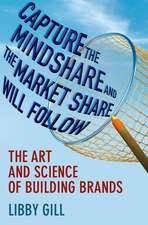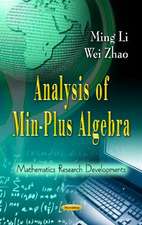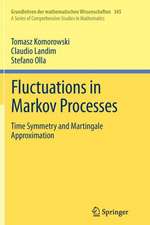Mathematical Statistics: Essays on History and Methodology: Springer Series in Statistics
Autor Johann Pfanzaglen Limba Engleză Hardback – 2 noi 2017
| Toate formatele și edițiile | Preț | Express |
|---|---|---|
| Paperback (1) | 945.92 lei 6-8 săpt. | |
| Springer Berlin, Heidelberg – 23 mai 2018 | 945.92 lei 6-8 săpt. | |
| Hardback (1) | 816.45 lei 3-5 săpt. | +26.51 lei 4-10 zile |
| Springer Berlin, Heidelberg – 2 noi 2017 | 816.45 lei 3-5 săpt. | +26.51 lei 4-10 zile |
Din seria Springer Series in Statistics
- 14%
 Preț: 679.60 lei
Preț: 679.60 lei - 20%
 Preț: 630.98 lei
Preț: 630.98 lei - 20%
 Preț: 1000.85 lei
Preț: 1000.85 lei -
 Preț: 390.84 lei
Preț: 390.84 lei - 20%
 Preț: 697.14 lei
Preț: 697.14 lei - 20%
 Preț: 445.20 lei
Preț: 445.20 lei - 20%
 Preț: 884.71 lei
Preț: 884.71 lei - 18%
 Preț: 1237.14 lei
Preț: 1237.14 lei - 18%
 Preț: 961.82 lei
Preț: 961.82 lei - 18%
 Preț: 956.50 lei
Preț: 956.50 lei - 18%
 Preț: 794.25 lei
Preț: 794.25 lei - 15%
 Preț: 648.05 lei
Preț: 648.05 lei - 18%
 Preț: 1217.10 lei
Preț: 1217.10 lei - 15%
 Preț: 646.11 lei
Preț: 646.11 lei - 15%
 Preț: 647.08 lei
Preț: 647.08 lei - 15%
 Preț: 646.11 lei
Preț: 646.11 lei - 18%
 Preț: 1329.76 lei
Preț: 1329.76 lei - 15%
 Preț: 652.81 lei
Preț: 652.81 lei - 18%
 Preț: 1114.52 lei
Preț: 1114.52 lei - 18%
 Preț: 952.40 lei
Preț: 952.40 lei - 18%
 Preț: 1333.42 lei
Preț: 1333.42 lei - 18%
 Preț: 1561.68 lei
Preț: 1561.68 lei - 18%
 Preț: 1231.47 lei
Preț: 1231.47 lei - 15%
 Preț: 513.64 lei
Preț: 513.64 lei - 18%
 Preț: 893.71 lei
Preț: 893.71 lei - 15%
 Preț: 649.87 lei
Preț: 649.87 lei - 18%
 Preț: 1007.65 lei
Preț: 1007.65 lei - 18%
 Preț: 1111.67 lei
Preț: 1111.67 lei - 18%
 Preț: 1223.70 lei
Preț: 1223.70 lei - 18%
 Preț: 892.74 lei
Preț: 892.74 lei - 18%
 Preț: 913.26 lei
Preț: 913.26 lei - 18%
 Preț: 943.88 lei
Preț: 943.88 lei -
 Preț: 391.61 lei
Preț: 391.61 lei -
 Preț: 391.22 lei
Preț: 391.22 lei - 18%
 Preț: 1331.18 lei
Preț: 1331.18 lei -
 Preț: 390.84 lei
Preț: 390.84 lei - 18%
 Preț: 888.45 lei
Preț: 888.45 lei - 18%
 Preț: 960.61 lei
Preț: 960.61 lei - 18%
 Preț: 1245.34 lei
Preț: 1245.34 lei - 18%
 Preț: 964.54 lei
Preț: 964.54 lei - 15%
 Preț: 643.16 lei
Preț: 643.16 lei - 18%
 Preț: 1723.76 lei
Preț: 1723.76 lei - 15%
 Preț: 643.84 lei
Preț: 643.84 lei - 15%
 Preț: 586.37 lei
Preț: 586.37 lei - 18%
 Preț: 999.59 lei
Preț: 999.59 lei - 15%
 Preț: 643.34 lei
Preț: 643.34 lei - 18%
 Preț: 806.40 lei
Preț: 806.40 lei - 18%
 Preț: 727.66 lei
Preț: 727.66 lei
Preț: 816.45 lei
Preț vechi: 1020.56 lei
-20% Nou
Puncte Express: 1225
Preț estimativ în valută:
156.25€ • 169.66$ • 131.25£
156.25€ • 169.66$ • 131.25£
Carte disponibilă
Livrare economică 01-15 aprilie
Livrare express 15-21 martie pentru 36.50 lei
Preluare comenzi: 021 569.72.76
Specificații
ISBN-13: 9783642310836
ISBN-10: 3642310834
Pagini: 320
Ilustrații: X, 316 p.
Dimensiuni: 155 x 235 x 26 mm
Greutate: 0.64 kg
Ediția:1st ed. 2017
Editura: Springer Berlin, Heidelberg
Colecția Springer
Seriile Springer Series in Statistics, Perspectives in Statistics
Locul publicării:Berlin, Heidelberg, Germany
ISBN-10: 3642310834
Pagini: 320
Ilustrații: X, 316 p.
Dimensiuni: 155 x 235 x 26 mm
Greutate: 0.64 kg
Ediția:1st ed. 2017
Editura: Springer Berlin, Heidelberg
Colecția Springer
Seriile Springer Series in Statistics, Perspectives in Statistics
Locul publicării:Berlin, Heidelberg, Germany
Public țintă
Upper undergraduateCuprins
Introduction.- Sufficiency.- Descriptive Statistics.- Optimality of unbiased estimators: nonasymptotic theory.- Asymptotic optimality of estimators.- Bibliography.- Index.
Notă biografică
Johann Pfanzagl completed his degree in Mathematics at the University of Vienna in 1951 as a student of Johann Radon and Edmund Hlawka. After working for several years as a Statistician at the Chamber of Commerce in Austria he became a Professor of Statistics at the University of Vienna in 1959, and at the University of Cologne in 1960. He is one of the few remaining scholars who, in the early days, contributed to the development of statistical theory using sophisticated mathematical tools.
Textul de pe ultima copertă
This book presents a detailed description of the development of statistical theory. In the mid twentieth century, the development of mathematical statistics underwent an enduring change, due to the advent of more refined mathematical tools. New concepts like sufficiency, superefficiency, adaptivity etc. motivated scholars to reflect upon the interpretation of mathematical concepts in terms of their real-world relevance. Questions concerning the optimality of estimators, for instance, had remained unanswered for decades, because a meaningful concept of optimality (based on the regularity of the estimators, the representation of their limit distribution and assertions about their concentration by means of Anderson’s Theorem) was not yet available. The rapidly developing asymptotic theory provided approximate answers to questions for which non-asymptotic theory had found no satisfying solutions. In four engaging essays, this book presents a detailed description of how the use of mathematical methods stimulated the development of a statistical theory. Primarily focused on methodology, questionable proofs and neglected questions of priority, the book offers an intriguing resource for researchers in theoretical statistics, and can also serve as a textbook for advanced courses in statistics.
Caracteristici
Presents a detailed description of the development of statistical theory beginning in ca. 1950 Discusses the interplay between the growing role of refined mathematical techniques and the corresponding development of methodological concepts Offers an intriguing resource for researchers in theoretical statistics
